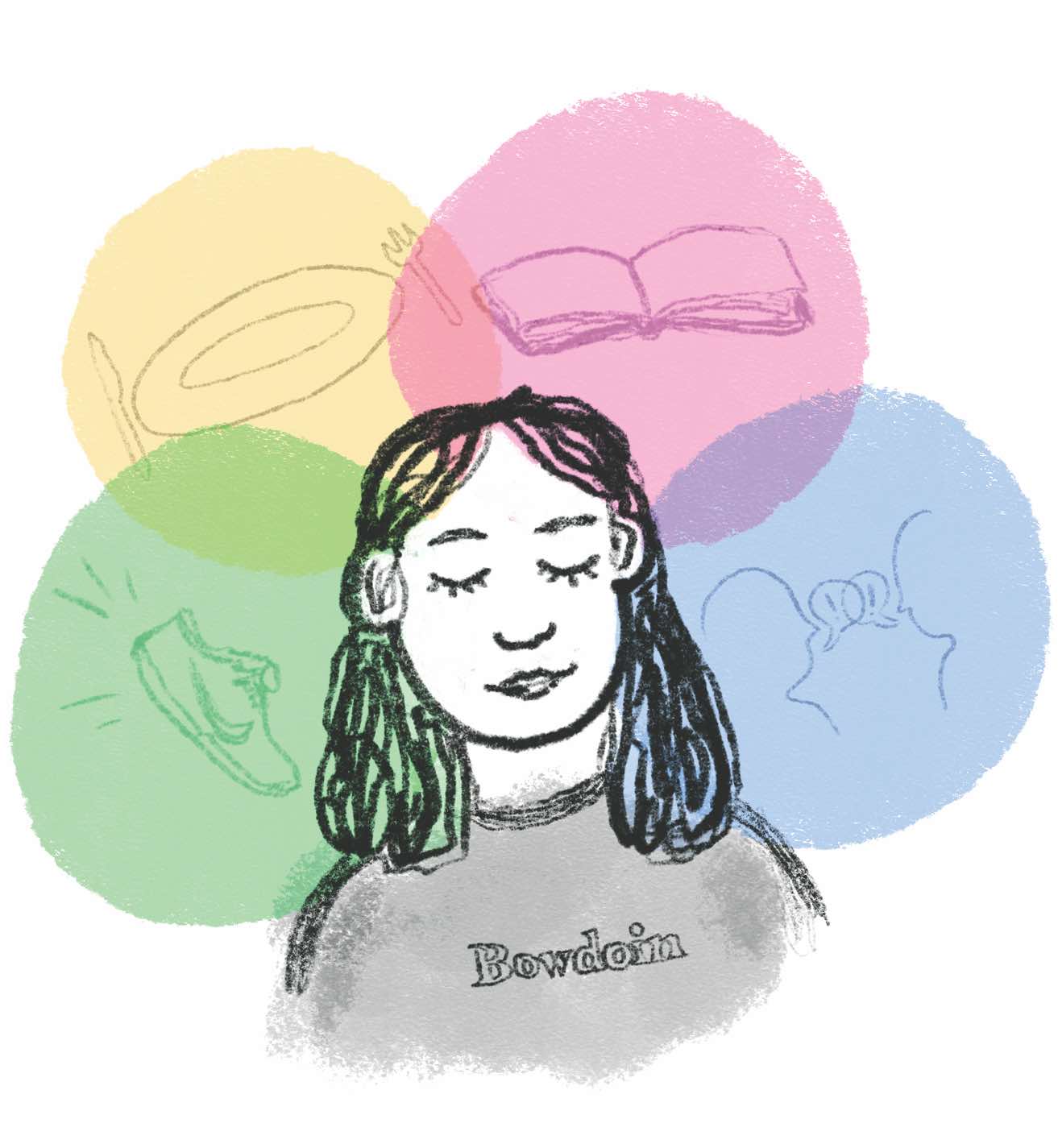Homeostatic identity
September 29, 2023
 Amira Oguntoyinbo
Amira OguntoyinboLast New Year’s Eve, my friend asked if I felt an unchanging “core identity” within myself. I said no, but she felt such a core. So why didn’t I?
I pondered her question as I flipped through activities and tried on hats. Would I be better off with a concrete core? Or did I have one that I did not see yet?
At Bowdoin, I have been experimenting. The word, “experiment,” can apply to alcohol and drugs, yes, but also to whitewater canoeing and curling; to new intimate encounters and friendships of uncharted depth; to studying with greater discipline than ever before and swimming in the ocean at night. I have learned to love experimentation. At Bowdoin, I have grown from a risk-averse, conflict-avoidant high schooler into a risk-taking, only mildly conflict-avoidant college student. I leaned into newness, and I loved it!
And yet, my greatest highlights were coming home at the end of the night to the same room with the same roommate and debriefing the day. Settling into a habitual hangout, she took the couch, I took the table and we breathed into old rhythms. Together we teased apart the details of any event that had left a bad taste in our mouths. The sweet ones, we savored. We generously served up those memories that nourished us and chewed a while on tougher ones. In this way, by digesting our days, we drew a sense of meaning and continuity through our lives.
Could this continuity be the same core identity which my New Year’s Eve friend described? No, my daily routine felt more fluid than concrete. No constant core sat in my soul, but there was something in there which I was maintaining with my daily routines. I may not be a psychology major, but as a biochemistry major, I do know a thing or two about cellular biology. And in biology, every living being is always maintaining continuity.
A single-celled organism is only alive because it maintains a consistent inner environment. No matter where it goes or what it does, it needs to maintain a liveable pH and a supply of chemical energy, among other factors, so that its cellular machinery can function. Organisms maintain this homeostasis with regulatory mechanisms. As a human, if I hypothetically ate a family size bag of Fritos in one sitting, my hypothalamus would sense my salt-to-water imbalance and trigger my thirst so that I stay hydrated. Without our innumerable homeostatic mechanisms, we would not live. Life may be full of change. But living is the ability to maintain some continuity through those changes. Claude Bernard, who introduced the concept of homeostasis that is now central to biology, declared that “a free and independent existence is possible only because of the stability of the internal milieu.”
This rings true for me psychologically: I am happiest when I am maintaining a strong sense of identity. When I fly 3000 miles to go home for the holidays, I feel discombobulated. Suddenly back in my childhood bedroom, I am no longer the student who debriefs nightly with her roommate. I become more of a daughter than I was before, more of a sister and a little bit more of an adult than I am when all my meals are prepared by dining staff. I have learned to brace myself for the unease I feel every time classes end or begin again.
Psychologist Jan Hofer and colleagues confirmed that “a firm identity enhances well-being by lending a sense of continuity to one’s life.” “Identity achievement” is a state in which an individual has “a firm commitment” to elements of their identity. Studies have repeatedly shown that people who have identity achievement have the highest well-being, in contrast to people who are uncommitted to their identities.
These salubrious identities are not static things, just as a living cell is not static even when it is not moving. Identity is actively maintained just as homeostasis is actively maintained. In psychology, some “active behaviors” are associated with identity achievement and the well-being that comes from it. People who actively “self-regulate” to remain focused in the face of distraction (“attention control”) or to calm themselves down in the face of adversity (“action control”) tend to have greater identity achievement and well-being than those who do not. Self-regulatory actions, psychologists suggest, contribute to strong identities.
Although I have not found the solid core within me which my New Year’s friend described, I often find myself returning to self-regulatory processes. I am not focused on a static core but a continuous process of maintenance. I continue to meditate for five minutes every day, run every morning and keep reading and writing. I ask you, my reader, what identity are you maintaining? And how are you maintaining it?

Comments
Before submitting a comment, please review our comment policy. Some key points from the policy: